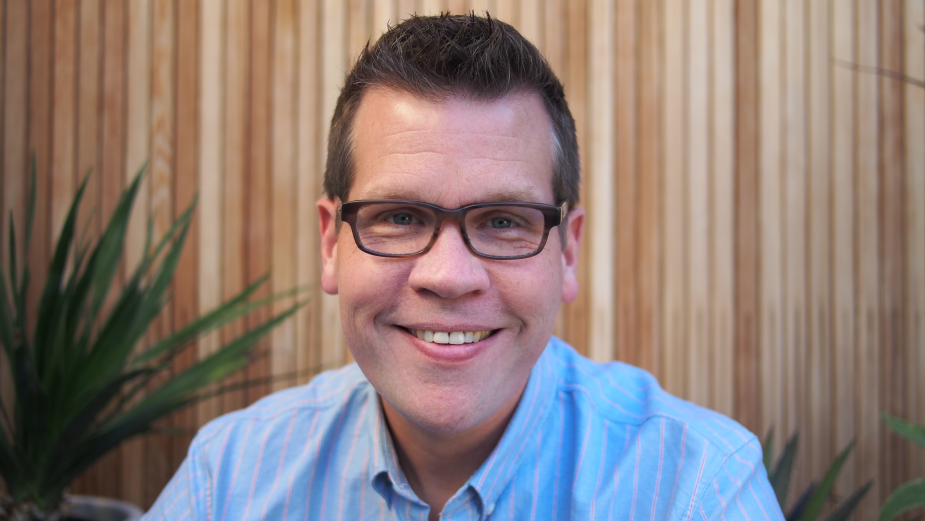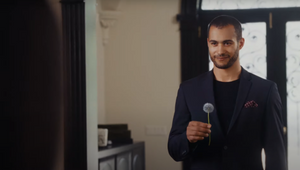
5 Minutes with… Eric Kallman

Eric Kallman is a founder and the chief creative officer of Erich & Kallman, a San Francisco agency that makes "ads people like".
Before launching Erich & Kallman with business partner Steven Erich in 2016, he was executive creative director at Goodby Silverstein & Partners where he was named one of the top 10 chief creatives in the United States by Adweek. While at Wieden+Kennedy Portland, he helped create Old Spice's transformative and Grand Effie-winning 'The Man Your Man Could Smell Like' campaign. He was a founding executive creative director of Barton F. Graf - after his time at Wieden+Kennedy - and has created celebrated work for the likes of Coca-Cola, KAYAK, Ragu, Little Caesars, CareerBuilder and many others.
He has won both the Film and Cyber Grand Prix along with 28 other Cannes Lions, the Best of Show at One Show Interactive along with dozens of other pencils, the GRANDY, back-to-back AICP Best of Show awards and an Emmy. His eight yellow pencils and two black pencils make him the third most awarded copywriter in D&AD history.
LBB's Addison Capper caught up with him to chat about how the “the broken big agency model” pushed him to launch his own agency, being a hands-on leader but in a good way, and why a lack of attrition in his creative department is something he’s proud of.
LBB> Tell me about the foundations of Erich & Kallman. How did it come to be that you and Steven went into business together? And why were you keen to launch your own venture?
Eric> I met Steve when he was president of Crispin Porter + Bogusky. He tried to hire me to be the head creative in the Boulder office. I ended up turning him down. A couple years later we were put in touch by a mutual acquaintance as we were both looking for a partner to start an agency with. Both of us had the same point of view on mostly everything when we first spoke, from wanting to do big, broadly-appealing work to the problems with the outdated big agency model.
LBB> Your career is pretty insane in terms of working for some of the most famous and loved agency brands in the States. How did you wind up in the industry in the first place? Was it something you actively wanted to do or a bit of a happy accident?
Eric> I went to college and studied broadcasting. I was eager and did a lot of internships and scored my first full-time job at an NPR station after graduation, but with all of that experience, I realised it wasn’t what I wanted to do for a career. So, I quit, moved back home with my family and had no idea what I was going to do. I was looking back through my college course catalogue and realised that the only class I hadn’t taken under my major was Introduction to Advertising. I didn’t even know what a copywriter or art director was. I sat in on a class at Miami Ad School San Francisco and watched people present concepts for print and TV and knew right away that this was something I should try.
LBB> Along with the agencies that you’ve worked for is, obviously, a whole bunch of hugely successful work too. Is there a piece (or a few pieces) from your career that feel particularly important or that you are particularly proud of?
Eric> For me, it’s the stuff that didn’t get as much attention as stuff like Skittles and Old Spice. I did two Super Bowl spots at Wieden+Kennedy that I’m proud of. ‘Tips’ for Careerbuilder and ‘Border’ for Coca-Cola. There’s some stuff at the beginning of Barton F Graf like Little Caesars, KAYAK.com, and the ‘A Long Day of Childhood’ campaign for Ragu that turned out great too.
LBB> In your bio it says that Erich & Kallman provides "an alternative to the broken big agency model". Can you speak a bit about why you think that model is broken today and an agency like E&K thrives under those conditions?
Eric> Advertising today moves fast, and big agencies have all of these endless layers of management and process that only slow things down. At Erich and Kallman we’re all doers. Creatives are concepting ads and then making them. That’s it. They’re not sitting in needless meetings for half the day.
But our biggest advantage is talent. Great talent doesn’t want to be at big agencies because they rarely do great work anymore. They’re going in-house, to tech companies and to independent shops like us where they’ll get real shots at making great stuff.
LBB> Which piece of work from Erich & Kallman are you most proud of and why?
Eric> That’s a tough one. Some of the campaigns we did for General Mills turned out great. Reese’s Puffs’ ‘What You Really, Really, Really, Really Want’ became a meme on Reddit, and kids actually dressed up like Tim and Charlie from our Go-Gurt campaign for Halloween. Most recently it might be the Take 5 Oil Change campaign. It’s a great construct that allows every spot to be actually funny.
LBB> One thing I noticed about your career is the famous work that you made in your early days as a creative. But as a CCO, I imagine you don't spend so much time ‘writing’ and a chunk of your responsibilities involve nurturing talent and listening to your teams to ensure they're able to work to the best of their abilities. What is your approach to this side of the job?
Eric> I like to spend as much time with the creatives as I can, and I find more time to write and concept than you might think. If I’m working on the brief too I understand it better and can be a bigger help to others. I’m hands-on, but in a good way, I think. The one piece of feedback I get that I’m proud of is that I’m a good teacher. Did you know in six years not one creative has left our agency for another shop? That might be the thing I’m most proud of overall.
LBB> What's the most exciting thing about advertising in the US today?
Eric> A few clients truly want to make great work that people will actually like, remember, talk about and share.
LBB> And the most frustrating?
Eric> Most clients don’t.
LBB> Do you have creative heroes? Who are they?
Eric> No heroes. I’ve worked for a lot of advertising’s ‘big names’ and most of them are horrible people if we’re being honest. But I do look up to some of the creatives that I’ve partnered with in the past, especially Craig Allen.
LBB> Outside of work, what keeps you happy / sane / busy / relaxed?
Eric> I have two young kids, and there’s nothing that’ll make you happier than that. Besides that, I’m a big sports guy and I find that watching a game is one of the few things that I can do that will take my mind off whatever brief is hot at the moment.
Also, Peanut M&Ms. Peanut M&Ms make me happy.















